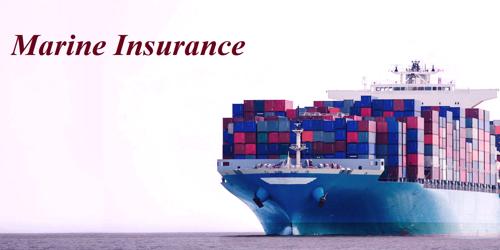Marine Insurance covers the loss or damage of ships, cargo, terminals, and any transport or cargo by which property is transferred, acquired, or held between the points of origin and final destination. This insurance covers the loss or damage of ships, cargo, terminals, and any transport or cargo by which the property is transferred, acquired, or held between the points of origin and the final destination.
Marine insurance has the following essential features which are also called fundamental principles of marine insurance,
(1) Features of General Contract,
(2) Insurable Interest,
(3) Utmost Good faith,
(4) A doctrine of Indemnity,
(5) Subrogation,
(6) Warranties,
(7) Proximate cause,
(8) Assignment and nomination of the policy.
(1) Features of General Contract:
(a) Proposal: The broker will prepare a slip upon receipt of instructions to ensure from ship owner, merchant or other proposers. Proposal forms, so common in other branches of insurances, are unknown in the marine insurance and only the ‘slip’ so-called ‘the original slip’ is used for the proposal.
(b) Acceptance: The original slip is presented to Lloyd’s Underwriters or other insurers or to the Lead of the insures, who initial the slip and the proposal is formally accepted. But the contract cannot be legally enforced until a policy is issued.
(2) Insurable Interest: Section 7, 8 and 9 to 16 provide for insurable interest. An insured person will have insurable interest in’ the subject-matter where he stands in any legal or equitable relation to the subject-matter in such a way that he may benefit by the safety or due arrival of insurable property or Maybe prejudiced by its loss, or by damage thereto or by the detention, thereof or may incur liability in respect thereof.
(3) Utmost Good Faith: Section 19, 20, 21 and 22 of the Marine Insurance Act 1963 explained the doctrine of utmost good faith. The doctrine of caveat emptor (let the buyer Beware) applies to commercial contracts, but insurance contracts are based upon the legal principle of uberrimae fides (utmost good faith). If this is not observed by either of the parties, the contract can be avoided by the other party.
(4) A doctrine of Indemnity: Under Section 3 of the Act at is provided “A contract of marine insurance is an agreement whereby the insurer undertakes to Indemnify, the assured in the manner and the extent agreed upon. The contract of marine insurance is of indemnity. Under no circumstances, an insured is allowed to make a profit out of a claim. In the absence of the principle of indemnity, it was possible to make a profit.
(5) A doctrine of Subrogation: After payment of the loss, the insurer gets the light, to receive compensation the third party from whom the assured is legally liable to get the amount of cot
(6) Warranties: A warranty is that by which the assured undertakes that some particular thing shall or shall not be done or that some conditions shall be fulfilled or whereby he affirms or negatives the existence of a particular ‘state of facts. Warranties are the statement according to which insured person promises to do or not to do a particular thing or to fulfill or not to fulfill a certain condition. It is not merely a condition but statement of fact.
(7) Proximate Cause: According to Section 55 (1) Marine Insurance Act, Subject to the provisions of the Act and unless the policy otherwise provides the insurer is liable for any loss proximately caused by a peril insured against, but subject to as aforesaid he is not liable for any loss which is not proximately caused by a peril insured against.
(8) Assignment: A marine policy is assignable unless it contains terms expressly prohibiting assignment, It may be assumed either before or after a loss. A marine policy may be assigned by endorsement thereon or on another customary manner. The feature of return of premium has been already discussed in the portion of life insurance.














